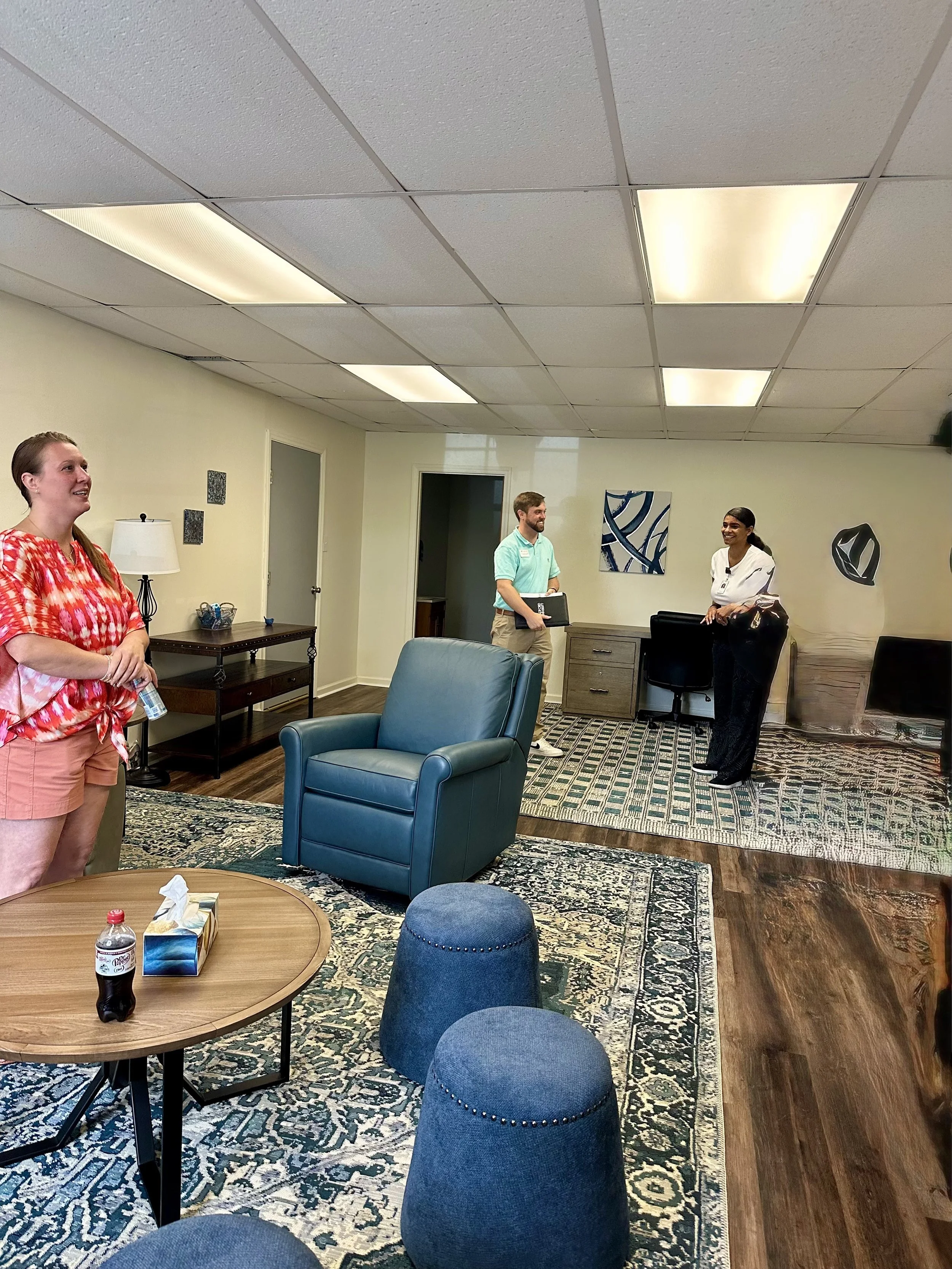Growing Together: The Expansion of Peer Recovery in the NRV
The 401 Peer Center, Radford City
When the New River Valley Recovery Ecosystem began its work in 2024, it already had a strong peer foundation to build on: “The 401”, a Peer Center in Radford. This hub has been serving the community since 2018, offering peer-driven support, programs, and a welcoming space for all. Now, thanks to funding from the regional opioid abatement project, the 401’s model is spreading its branches across the region—bringing hope and connection to even more communities.
At the heart of every Peer Center is a simple but powerful idea: recovery grows in community. These centers offer more than just resources—they provide a safe place to learn, connect, relax, and rediscover interests and skills to apply to a life in recovery. From computer access and classes, to game nights and social events, to groups and quiet moments of rest, the goal is the same: to walk alongside people in recovery, addressing both immediate needs and long-term goals while connecting them with supportive partners and agencies.
And now, exciting new chapters are beginning:
Floyd’s Rooted in Recovery opened its doors on August 11th, welcoming participants into its downtown Floyd space near the DSS offices.
The Giles Day Won Center celebrated with a ribbon cutting on August 15th, marking a new beginning for residents seeking support through fitness and peer-lead programming.
Pulaski’s Community Collaboration Center is set to open by mid-October, expanding the network even further with permanent space for partner agencies and meeting space for recovery groups.
Instill Mindfulness in Pulaski has launched new programs, including respite services for peers and participants, starting this August.
NRCC has expanded their collegiate recovery space this fall - reducing stigma through community building on campus.
What ties all these efforts together is a shared commitment: meeting people exactly where they are on their recovery journey.
Research shows that recovery is built on trust and relationships. And who better to walk that path alongside someone than a peer who has faced similar challenges and is also working toward healing? Peer Centers aren’t just places to find resources—they are places to find connection, belonging with and in community.
Together, these centers are weaving a stronger, more compassionate NRV Recovery Ecosystem—one where every individual is seen, supported, and valued.




